Tony Mauro
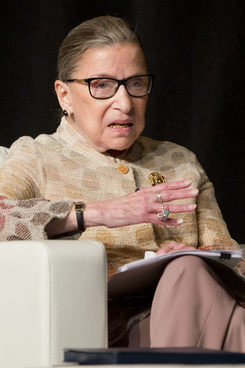
May 27, 2016 | National Law Journal
Ginsburg on Scalia: A Discerning Shopper and Brilliant FriendThe late justice Antonin Scalia was not just a dear colleague and friend, Justice Ruth Bader Ginsburg said Thursday. He was also a "discerning shopper." In remarks at the judicial conference of the U.S. Court of Appeals for the Second Circuit at Saratoga Springs, New York, Ginsburg spoke at length about her legendary close friendship with Scalia—a relationship that endured despite their sharply differing judicial views. Scalia died on Feb. 13.
By Tony Mauro
3 minute read
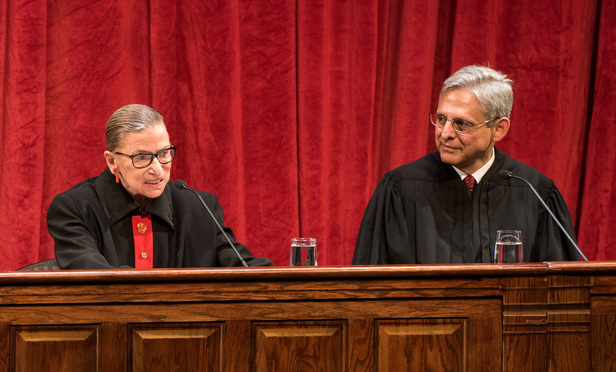
May 26, 2016 | National Law Journal
Justices, For the Most Part, Don't Complain About Eight-Member CourtAs loudly as advocates lament the plight of an eight-member U.S. Supreme Court, there is one interested group that has barely made a peep—the eight justices themselves. With the exception of Justice Ruth Bader Ginsburg, when they have addressed the subject, they suggest it has had fairly minor impact on their work. "Eight, as you know, is not a good number for a multimember court," Ginsburg said Thursday.
By Tony Mauro
13 minute read
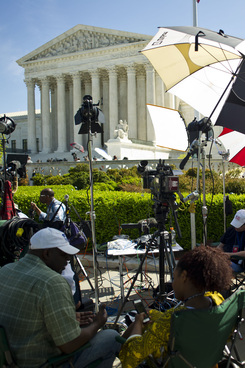
May 25, 2016 | National Law Journal
'Oyez Project' New Home Will Keep Supreme Court Audio Free to PublicAfter months of uncertainty about its future, the Oyez Project, a free repository of more than 10,000 hours of U.S. Supreme Court oral-argument audio and other court resources, has found a new home. The project's founder, Jerry Goldman, who is retiring soon, told The National Law Journal on Tuesday that a newly minted arrangement with Cornell University's Legal Information Institute and Justia, the online publisher of legal information, will keep Oyez alive.
By Tony Mauro
8 minute read
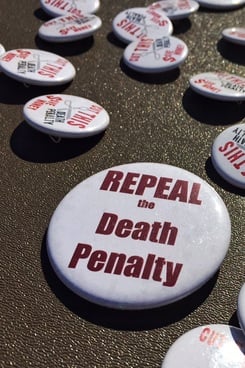
May 23, 2016 | Supreme Court Brief
John Roberts Knocks Down Prosecution Bias Excuses One by OneChief Justice John Roberts Jr. on Monday sent a strong message to state courts and prosecutors that racial bias in jury selection is unacceptable.
By Tony Mauro
9 minute read
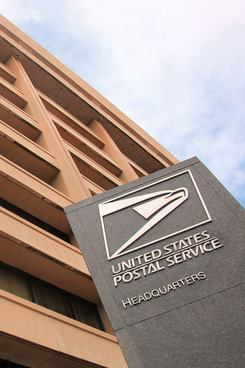
May 23, 2016 | Law.com
Justices, Reviving Employee's Race Claim, Open Wider Window to SueThe U.S. Supreme Court on Monday gave plaintiffs in workplace discrimination cases more time to file complaints against their employers. By a 7-1 vote, the court said the 45-day deadline for initiating a constructive-discharge claim can begin running from the day the employee resigns—not the day of the last discriminatory workplace incident. Business advocates criticized the decision, which could enable lawsuits filed years after alleged discriminatory acts occur.
By Tony Mauro
11 minute read

May 23, 2016 | National Law Journal
Carter Ledyard & MilburnHow is it that Carter Ledyard & Milburn, a midsize New York law firm, can attract clients ranging from a Native American casino operator in Northern California to the Blue Man Group?
By Tony Mauro
2 minute read

May 23, 2016 | National Law Journal
NossamanThe California firm boasts that it has been "at the forefront of the infrastructure practice area for decades."
By Tony Mauro
2 minute read

May 19, 2016 | Supreme Court Brief
Did the Justices Send a Message to the EEOC in a Legal-Fee Case?By ruling in favor of awarding legal fees to a company that the government accused of widespread sexual harassment, the U.S. Supreme Court may have been sending a broader message that the Equal Employment Opportunity Commission needs to clean up its act.
By Tony Mauro
15 minute read
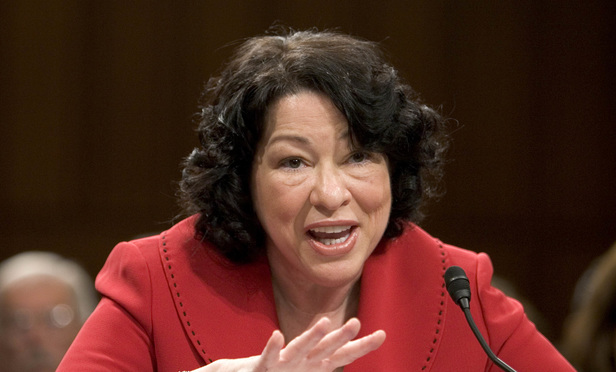
May 19, 2016 | National Law Journal
Sotomayor's Embrace of Mandatory Pro Bono Garners Praise and PushbackU.S. Supreme Court Justice Sonia Sotomayor is winning praise for re-energizing the movement toward mandatory pro bono for lawyers with her recent remarks on the subject, but some advocates in Big Law think the requirement poses significant challenges and won't work for everyone.
By Tony Mauro
16 minute read
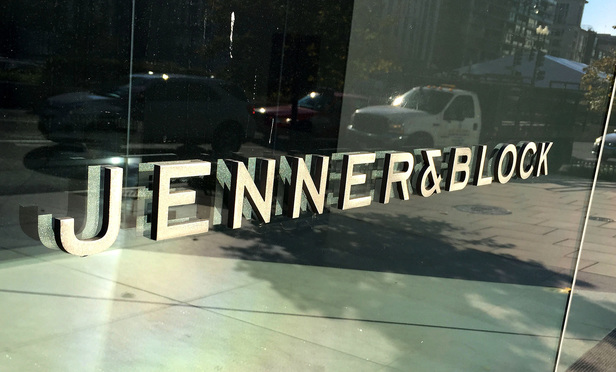
May 19, 2016 | National Law Journal
Justices Allow Attorney Fee Awards Without Victory on MeritsIn a ruling that could mean more attorney fee awards for employers in workplace discrimination cases, the U.S. Supreme Court on Thursday said defendants don't have to win on the merits to be counted as the “prevailing party.”
By Tony Mauro
7 minute read
Trending Stories
- 1'It's Not Going to Be Pretty': PayPal, Capital One Face Novel Class Actions Over 'Poaching' Commissions Owed Influencers
- 211th Circuit Rejects Trump's Emergency Request as DOJ Prepares to Release Special Counsel's Final Report
- 3Supreme Court Takes Up Challenge to ACA Task Force
- 4'Tragedy of Unspeakable Proportions:' Could Edison, DWP, Face Lawsuits Over LA Wildfires?
- 5Meta Pulls Plug on DEI Programs
More from ALM
- Scan In Progress: Litigators Leverage AI to Screen Prospective Jurors 1 minute read
- Legal Speak at General Counsel Conference East 2024: Match Group's Katie Dugan & Herrick's Carol Goodman 1 minute read
- Legal Speak at General Counsel Conference East 2024: Eric Wall, Executive VP, Syllo 1 minute read



